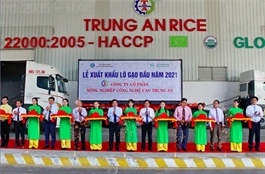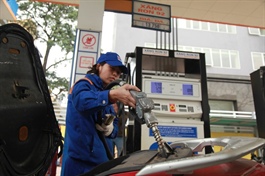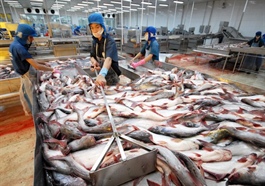New regulations to change Vietnam automobile industry in 2021
New regulations to change Vietnam automobile industry in 2021
Cars in Vietnam since 2021 are subject to new regulations such as registration fee, import tariff, and higher emission standards.
A number of new laws and regulations that are set to take effect on January 1, 2021 and could change Vietnam’s automobile industry.

Cars manufacturing at Vinfast. Photo: Pham Hung.
|
End of 50% reduction in registration fee for domestic cars
The Ministry of Finance (MoF) has not extended the policy of 50 per cent registration fee cut for domestically-manufactured cars as embassies of some countries, including Thailand, Indonesia, and the European Chamber of Commerce (EuroCham), expressed concern that such a reduction shows discriminatory treatment against imported cars.
While the Covid-19 pandemic remains complicated globally, the MoF has continued extending the validity period for many existing supporting programs, including the ongoing cut of 50-100% in 29 fees and expenses, in various sectors from January 1, 2021 to June 30, 2021. However, the list did not include the registration fee cut that was expired on December 31, 2020.
This move is predicted to harm the domestic automobile market as car buyers have to pay the registration fee, which accounts for up to 12% of the car price. To boost consumption, a number of car manufacturers and dealers, including Vinfast, are providing their own support for customers in payment of registration fee.
Lower import duty for European cars
Since January 1, 2021, import tariffs for cars imported from the EU have been significantly reduced. Under the new tariff schedule stipulated in Decree No.111/2020/ND-CP that took effect in early 2021, import duty for cars from Europe would be reduced to 63.8% from 70.9%.
Lowering import duty is Vietnam’s commitment under the EU – Vietnam Free Trade Agreement (EVFTA), which took effect last year.
Car expert Vinh Nam said that customers should not expect a sharp price decline in car imports from Europe, especially as the import duty cut is a gradual process and the tax rate of excise tax for car imports are based on the sale price, which includes profit of car dealers.
Applying simulation modeling to driving tests
Starting from January 1, 2021, all driving schools and testing centers in Vietnam are required to add simulation modeling into the driving test, so that the candidates should have experience on various driving circumstances and enhance their driving capabilities.
Higher emission standards for old vehicles
In 2021, all cars manufactured between 1999 to 2008 will be subject to emission standards at level 2, instead of level 1. Under current standards, petroleum engine automobiles are qualified for level 1 if they have carbon monoxide emissions (CO) of less than 4.5% and the hydrocarbon concentration (HC) of less at 1,200 part per million (ppm).
Level 1 is the lowest standard, while for cars to meet level 2 and 3, vehicles must have CO of less than 3.5 and 3.0% and HC of less than 800 and 600 ppm, respectively.
Cars with less than 10 seats not required to have fire extinguishers
Since January 10, 2021, passenger cars with less than 10 seats are not required to have a mini fire extinguisher. As such, owners of cars with four to nine seats only have to meet the overall requirements for fire prevention and safey standards.
Previously, the Ministry of Public Security had made it mandatory for vehicles with four to nine seats to carry extinguishers, and those who fail to meet the requirement would be fined from VND300,000-500,000 (US$13-22).



























